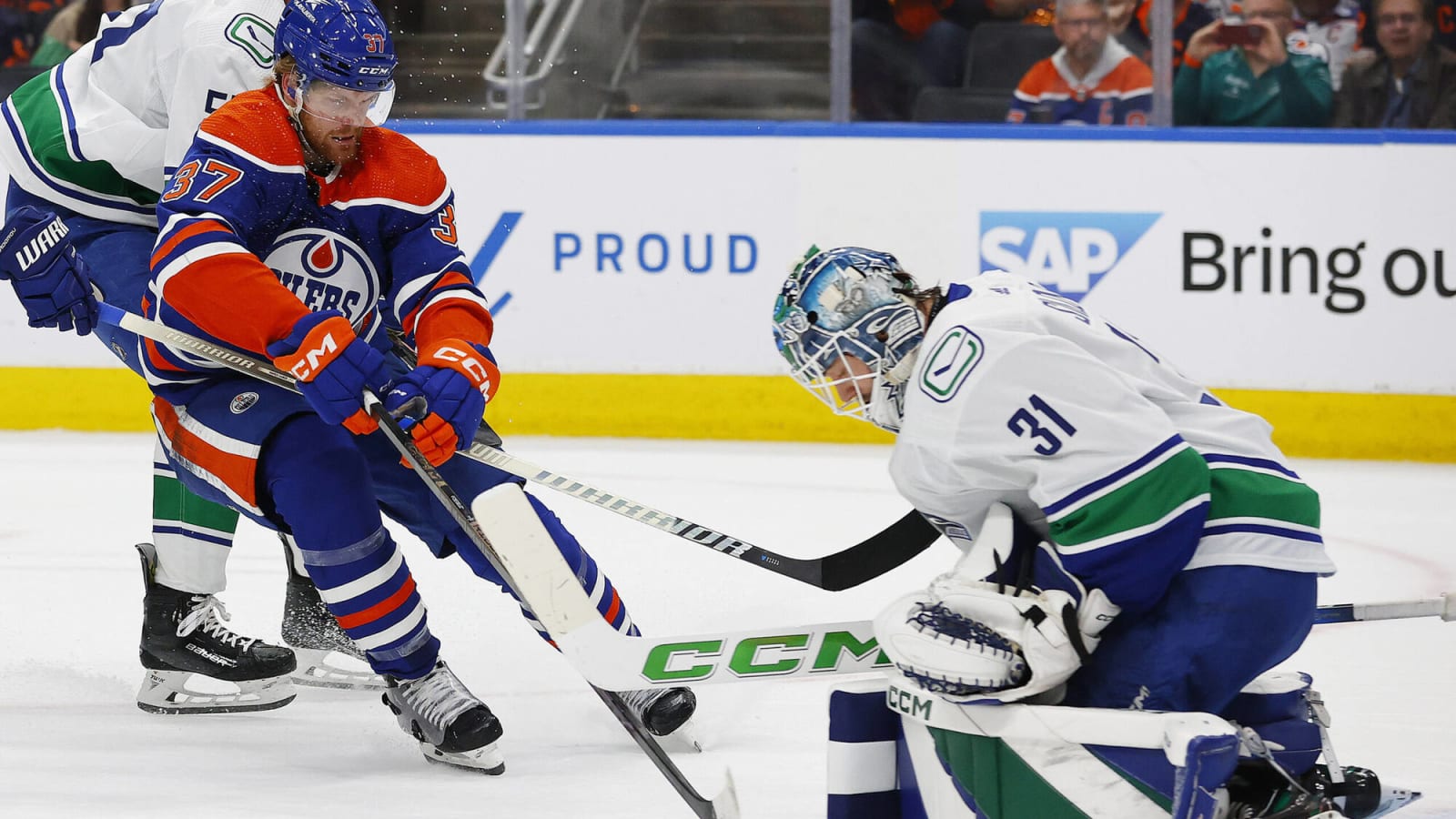With the news Tuesday morning that the Vancouver Canucks had re-signed Arturs Silovs to a two-year/$1.7M deal, the hockey club appears to be set in goal for the next two seasons at a remarkably affordable price point.
Thatcher Demko has two years left on his contract at $5M per season and now Silovs will count $850K against the cap through the 2026-27 National Hockey League season. That’s a total of $5.85M committed to the most important position in the game.
The 23-year-old Latvian was a restricted free agent without arbitration rights, and as such, had virtually no leverage in negotiations with the organization that drafted him in the sixth round (156th overall) in 2019. Still, it’s a remarkable bargain for a player that already has 10 Stanley Cup playoff games on his resume. That alone seemed like it might have been able to bump his salary into seven digits. As it stands, at $800K in both years with a $100K signing bonus, Silovs’ new pact is only a handful of dollars above league minimum.
Of all goaltenders taken in the 2019 Draft, only six have appeared in NHL games so far and Calgary’s Dustin Wolf is the only one selected after Silovs who has logged NHL action. So it’s clear that the Canucks fared well finding Silovs where they did.
Now with two years of security and additional time to continue his development under the tutelage and keen eye of Canucks Director of Goaltending Ian Clark, Silovs should prove to be more than a capable back-up to Demko. But that time span is interesting, too, because Silovs is on a path right now that could very well lead to the point that when this new deal expires, he’ll be 25-years-old and perhaps on the cusp of being ready to assume a starter’s job in the NHL.
This is where things could get complicated. In Demko, the Canucks have the runner-up for the Vezina who’s under contract for two more seasons. If he continues to play at the level he’s shown the past couple of seasons, he’s going to be in for a hefty raise. For example, current Vezina winner Connor Hellebuyck signed a seven-year deal with an annual average value of $8.5M – and a deal that pays him $10M cash in two of the next three years. Sure, the salary cap appears to be on the rise, but the Canucks also need to preserve ample cap space for the mega-extension captain Quinn Hughes will be seeking the year after Demko’s deal expires. Will be there be enough room under the team’s cap to keep everyone in the fold?
That’s what makes Silovs’ development both important and fascinating in these next 24 months. The best case scenario is that both goalies continue to play at a high level giving the Canucks an edge in net most nights out. If they’re going to be a contender in the Pacific Division and the Western Conference, the Canucks are likely to lean on their goaltenders to perform at a high level behind Rick Tocchet’s structured system.
An organization can never have too much goaltending – the Canucks saw that for themselves in the playoffs. If Demko and Silovs continue to deliver, at some point the Canucks will have decisions to make, but they’ll also have options if they have a pair of goaltenders that continue to get the job done.
Those, however, are determinations for down the road. Right now, the Canucks have positioned themselves to extract significant value between the pipes. They have their ace looking to rebound from the injuries that prevented him from playing much down the stretch and limited him to just one post-season appearance. And now, with an affordable new contract in hand, the club also has its understudy ready to take on more of a challenge.
With all due respect to the many men that have played the position for the Canucks in recent years, with Thatcher Demko and Arturs Silovs the hockey club may very well have its best 1-2 punch in net since the days of Roberto Luongo and Cory Schneider.





